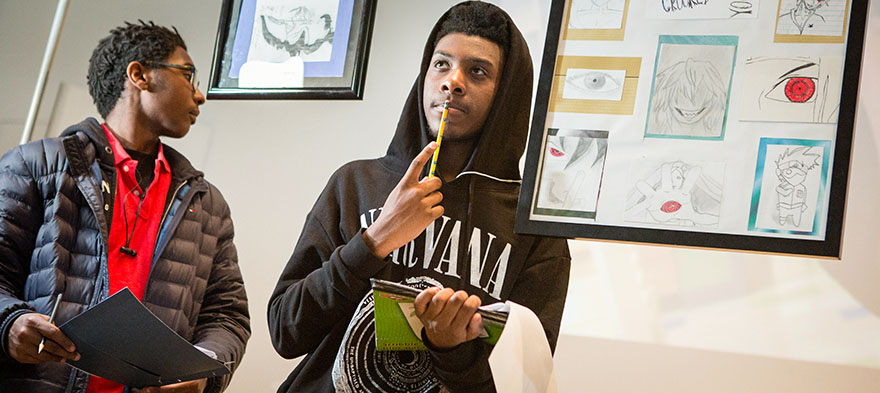
Jun 29, 2018 12:00:00 AM
It’s important to know that so many people have this perception of our kids as being these violent gangbangers, when most of them are just kids going to school, trying to make themselves better, doing what you ask them.And for those very reasons, Black boys as young as 5 are being pushed out of schools because of unfair discipline practices, shot dead by police and killed in the streets before they even graduate from high school. And the ones who do “make it” still struggle. Only about half of Black males graduate from high school and less than half of those who go to college earn a degree. So [pullquote position="left"]we need this “Black Boy Joy”[/pullquote] from kids like Ishmale Powell who’s headed to college at 15 years old. Twins Malik and Miles George are co-valedictorians who are headed to MIT in the fall. And Demetrius Harmon, who almost committed suicide but survived because of his mother. Because, while the achievement and belief gaps still exist, these young men are pushing through despite the obstacles. These real life examples serve as encouragement. Our boys and girls of color have to be continuously encouraged to keep pushing. And so do the rest of us. Let’s acknowledge a new generation of leaders, like these new Ed Trust West Fellows and these EdLoc recipients of the Boulder fund. I salute my sister Vesia Hawkins for calling out a great school in Nashville and an opportunity to start more of them. Kids can’t wait.
Tanesha Peeples is driven by one question in her work—“If not me, then who?” As the former Deputy Director of Activist Development for brightbeam, Tanesha merges the worlds of communications and grassroots activism to push for change in the public education system. Her passion for community and relentless mission for justice and liberation drive her in uplifting and amplifying the voices and advocacy of those that are often ignored. Tanesha wholeheartedly believes that education is the foundation for success. Her grand vision is one where everyone—regardless of ethnicity, socioeconomic status, gender or ZIP code—can have access to a comfortable quality of life and enjoy the freedoms and liberties promised to all Americans. And that's what she works towards every day.
Few issues in education spark more tension and debate than standardized testing. Are they a tool for equity or a burden on students? A necessary check on school systems or a flawed measure of...
Charter schools are public schools with a purpose. Operating independently from traditional school districts, they're tuition-free, open to all students, and publicly funded—but with more flexibility...
Despite the benefits of a diverse teaching force, prospective teachers of color fall out of our leaky preparation pipeline at every stage: preparation, hiring, induction, and retention. Here’s what...
Ed Post is the flagship website platform of brightbeam, a 501(c3) network of education activists and influencers demanding a better education and a brighter future for every child.
© 2020-2025 brightbeam. All rights reserved.
Leave a Comment